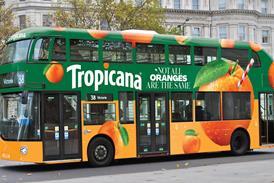Your chance to comment on today's top story
A new study by the Association of Convenience Stores (ACS) has revealed what it describes as “the single most compelling proof” that the supermarkets are distorting competition in the UK grocery market by obtaining cheaper prices from suppliers than independent stores.
The study, which compared over 300 products sold in both large and small stores, found that 10% of the products sold on supermarket shelves are available to the consumer at a lower price than that paid by a wholesaler supplying the independent trade.
It also reveals that, based on an estimation of likely margins, the selling price of 74% of items in supermarkets suggests they were purchased at prices below those available to the independent sector.
The findings challenge the Competition Commission (CC)'s view, stated in its Emerging Thinking, that no significant differential exists between supermarket buying and the rest of the market. The ACS has urged the CC to consider the new evidence in its ongoing inquiry into the grocery market.
ACS chief executive James Lowman said: “This study shows that in 10% of cases a small shop cannot buy products from their wholesaler cheaper than they could off the shelf in a supermarket. This is the single most compelling proof that there is a severe competition problem in the market and shows how important it is that the Competition Commission goes further in their probe of relationship between supermarkets and their suppliers.
“We were astonished when the Commission’s Emerging Thinking suggested there is no systematic differential in favour of supermarkets. It is now up to the Commission to look more thoroughly into the evidence.”
The study compared the buying prices of three wholesalers supplying the independent sector with the supermarket selling prices from the online shopping sites of Tesco, Sainsbury and ASDA. Of the 317 items surveyed, there were 32 instances where the average wholesale price was higher than the average supermarket retail price, as measured in February 2007.
In its Emerging Thinking, published earlier this year, the CC stated: “A preliminary analysis of price data for 15 suppliers of major branded goods does not indicate the presence of price differentials that are consistently in favour of the larger grocery retailers.” Last week it used its statutory powers to force a number of unnamed suppliers and trade associations to hand over papers which might contain evidence of pricing differentials.
Have your say
Does the buying power of the multiples unfairly restrict competition in the grocery market?
Post your comments here. Your contribution may be edited for publication. Your email address will not be published.
Readers Comments:
Nicole Inwood:
The buying power of the multiples absolutely/totally restrict competition in the grocery marketAsh:
The wholesalers must be totally blind if they were not aware of this pricing differential. On the other hand the big supermarkets have well-oiled propaganda machines to ply the politicians with their side of story. The wholesalers should be lobbying along with their MPs to force the issue.Sarabjeet S Sidhu:
Referring to the unfair buying practices of supermarkets and the cahoots they are in with the wholesalers, it says a lot about how they are together destroying communities. This comes as no surprise, I know a manufacturer who supplies Tescos with pies at 40p each yet they sell to independents at 70p each. This has been similarly said to me by a cake supplier who was fined for making a delivery to them three days late. This cost them £70,000. I have to say that these comments have been made to me by the reps and sales staff of these companies.June Thomas:
How independent is the CC, if at all? I have never understood how they have been unable to find evidence of the distorting of prices by the supermarkets. They don't need a 'study' or an inquiry. One man needs to go into a supermarket, and then into a wholesalers premises. Compare the prices, and Bingo, there's the proof.


















No comments yet